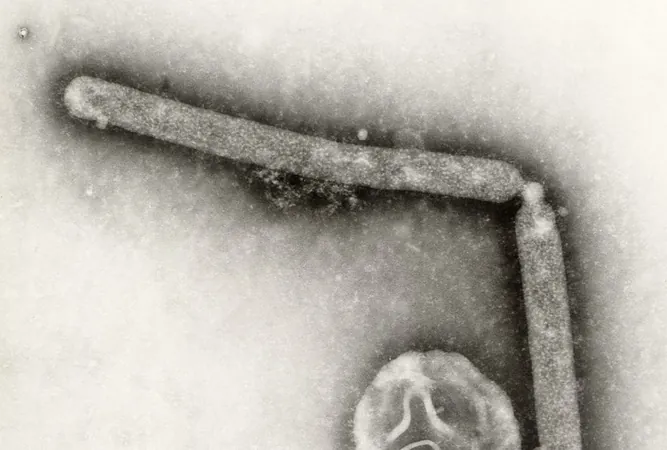
Alarming Mutation of Bird Flu Virus Detected in Louisiana - What It Means for You!
2024-12-28
Author: Ling
Introduction
A recent genetic analysis has revealed that the bird flu virus may have undergone mutations within a Louisiana patient who experienced the nation's first severe case of the illness, according to the U.S. Centers for Disease Control and Prevention (CDC). This discovery raises important questions about the virus's potential to adapt and affect human health.
Potential Impact of Mutations
Research scientists speculate that these mutations could enhance the virus's ability to bind to receptors located in the upper airways of humans. Michael Osterholm, a leading infectious disease expert from the University of Minnesota, explained this binding process using the analogy of a lock and a key. In this context, the virus must possess the right key to unlock human cells for entry. Although the findings suggest that the virus may be evolving a more effective 'key,' experts maintain that there is no immediate cause for alarm.
Expert Insights
Osterholm reassured the public by stating, “Is this an indication that we may be closer to seeing a readily transmitted virus between people? No. Right now, this is a key that sits in the lock, but it doesn’t open the door.”
Historical Context
Historically, the bird flu has led to sporadic, mostly mild illnesses among individuals in the United States, predominantly in those working on dairy or poultry farms. The Louisiana patient, whose identity remains undisclosed, is over 65 years old and has pre-existing medical conditions. This patient was hospitalized under critical conditions due to severe respiratory issues linked to bird flu, having come into contact with sick and deceased birds from a backyard flock.
Current Risk Assessment
The CDC emphasized that there has been no recorded transmission of the virus from the Louisiana patient to any other individuals, assuring that the overall risk to the general public related to this outbreak remains low. However, experts like Osterholm stress the need for ongoing monitoring of the virus's mutations.
Future Concerns and Precautions
Osterholm warns, “There will be additional influenza pandemics, and they could be much worse than we saw with COVID. We know that the pandemic clock is ticking. We just don’t know what time it is.” This statement serves as a reminder that vigilance in monitoring viral changes is crucial in safeguarding public health.
Conclusion
As the situation develops, the CDC and scientific community are urging individuals, especially those in close contact with poultry, to remain alert and follow recommended safety guidelines to mitigate any potential risks of infection.



 Brasil (PT)
Brasil (PT)
 Canada (EN)
Canada (EN)
 Chile (ES)
Chile (ES)
 Česko (CS)
Česko (CS)
 대한민국 (KO)
대한민국 (KO)
 España (ES)
España (ES)
 France (FR)
France (FR)
 Hong Kong (EN)
Hong Kong (EN)
 Italia (IT)
Italia (IT)
 日本 (JA)
日本 (JA)
 Magyarország (HU)
Magyarország (HU)
 Norge (NO)
Norge (NO)
 Polska (PL)
Polska (PL)
 Schweiz (DE)
Schweiz (DE)
 Singapore (EN)
Singapore (EN)
 Sverige (SV)
Sverige (SV)
 Suomi (FI)
Suomi (FI)
 Türkiye (TR)
Türkiye (TR)
 الإمارات العربية المتحدة (AR)
الإمارات العربية المتحدة (AR)